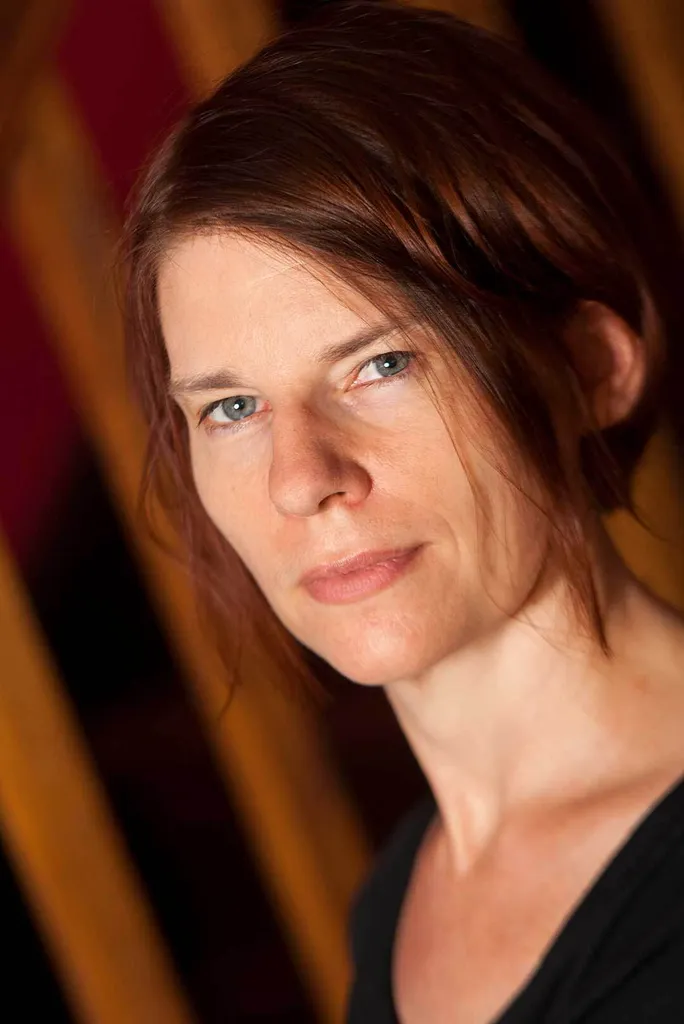- February 24, 2022
- By Sala Levin ’10
For a certain set of elite 19th-century Parisians, the “hysterical” women of Pitié-Salpêtrière Hospital weren’t simply unwell people in need of treatment: They were a source of lurid entertainment.
Diagnosed with the catch-all term for women behaving outside expected social norms, they were held at the still-functioning hospital, where, under the supervision of famed physician Jean-Martin Charcot, they had seizures or auditory hallucinations—whether authentic or exaggerated for show—in front of a titillated crowd.

University of Maryland English Professor Maud Casey, who first discovered photographs of these women decades ago while an undergraduate at Wesleyan University, found them “horrifying,” “poignant”—and unforgettable. She wondered, “What is happening beyond the frame of these pictures, and who are these mysterious selves of these girls and women?”
“City of Incurable Women,” Casey’s fictional book published this week by Bellevue Literary Press, attempts to answer that question through evocative prose told in first, second person and third person, as well as in the voice of an unnamed collective group. She interweaves archival photographs and documents from the hospital throughout the book as she tries, through imagination, to animate these real women with a greater humanity than was recognized in their isolation.
“Here, those of us not yet fluent in the language of hysteria, the language of our pain—amorous supplications, eroticism, ecstasy, hallucinations, crucifixion, mockery, menace, the cry, etc.—have no names,” says one of the anonymous women. “Those who have mastered that language are the prettiest or the most ecstatic, the doctor’s best girls until another best girl comes along.”
Some of the so-called “stars” of Salpêtrière Hospital, like Louise Augustine Gleizes and Marie “Blanche” Wittman, have their own sections, describing their traumatic upbringings and unwilling confinement at the hospital. These women were prized for their beauty, their charisma and their ability to “make good theater,” said Casey. Audiences at the weekly demonstrations included influential figures like Sigmund Freud, Sarah Bernhardt and Edgar Degas.
Several of Casey’s previous four books have also focused on psychiatry and mental illness. In 2014’s “The Man Who Walked Away,” the protagonist travels on foot across Europe in a trance-like state—it’s based loosely on the real story of a 19th-century Frenchman. Her novel, “Genealogy,” from 2006, traces the legacy of mental illness throughout a family.
In her newest book, Casey’s “rich imaginative leaps make for tantalizing and affecting portraits,” wrote Publishers Weekly in a starred review. “Despite its often somber tone, ‘City of Incurable Women’ is in the end affirmative and inspiring, a powerful demonstration of Maud Casey’s artistry,” The Boston Globe review read.
Casey hopes that contemporary readers will glimpse a world that seems both frighteningly foreign and unsettlingly familiar, she said. The images of women whose diagnoses have been etched onto their bodies with knives is jarring today, and yet, “there are still a lot of notions about female physiology that suggest there is something inherently amiss with the female body,” Casey said. “What is going on beyond the frame is still a valid question. What exists beyond the body? What’s going on inside?”
Topics
Arts & Culture